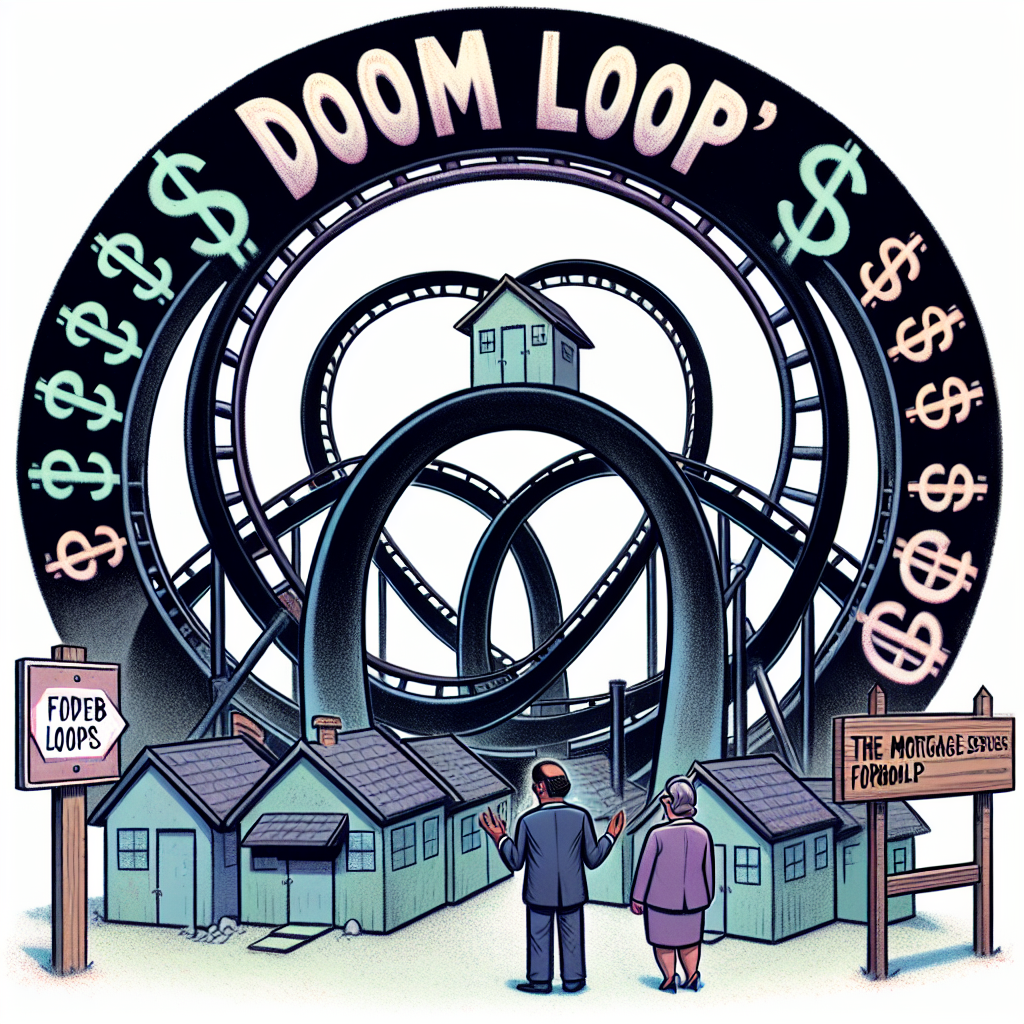CFPB Criticizes Mortgage Servicers for ‘Doom Loop’ Practices
The Consumer Financial Protection Bureau (CFPB) has recently raised concerns over certain practices by mortgage servicers that it describes as a “doom loop.” These practices, according to the CFPB, trap borrowers in a cycle of debt and financial instability, making it difficult for them to recover. This article delves into the specifics of these practices, the implications for borrowers, and the broader impact on the housing market.
Understanding the ‘Doom Loop’
The term “doom loop” refers to a cycle where borrowers, often already in financial distress, are subjected to practices that exacerbate their situation. The CFPB has identified several key practices that contribute to this cycle:
- Excessive Fees: Mortgage servicers often impose high fees for late payments, loan modifications, and other services. These fees can quickly accumulate, making it even harder for borrowers to catch up on their payments.
- Inadequate Communication: Borrowers frequently report difficulties in reaching their servicers or receiving clear information about their loan status and options. This lack of communication can lead to missed opportunities for assistance or modification.
- Misapplied Payments: Errors in applying payments can result in borrowers being incorrectly reported as delinquent, further damaging their credit and financial standing.
Case Studies and Real-World Examples
Several case studies highlight the impact of these practices on borrowers. For instance, a study by the National Consumer Law Center found that borrowers who were charged excessive fees often faced foreclosure despite making substantial efforts to keep up with payments. In one case, a borrower was charged over $10,000 in fees over two years, making it impossible to catch up on their mortgage.
Another example involves a borrower who attempted to modify their loan to avoid foreclosure. Despite submitting all required documentation, the servicer failed to process the modification in a timely manner, leading to unnecessary foreclosure proceedings.
Statistics Highlighting the Issue
Data from the CFPB and other organizations underscore the prevalence of these issues:
- According to the CFPB, over 80% of complaints about mortgage servicers involve issues with loan modifications, collections, or foreclosures.
- A report by the Urban Institute found that nearly 30% of borrowers who sought loan modifications were charged fees that they could not afford.
- The Federal Reserve’s data indicates that mortgage delinquencies have increased by 15% over the past year, partly due to these problematic servicing practices.
Implications for Borrowers and the Housing Market
The practices criticized by the CFPB have far-reaching implications. For borrowers, the financial strain can lead to foreclosure, loss of home equity, and long-term damage to credit scores. This not only affects their immediate financial stability but also their ability to secure housing in the future.
On a broader scale, these practices can destabilize the housing market. As more borrowers face foreclosure, housing supply increases, potentially leading to decreased property values. This can create a ripple effect, impacting homeowners who are not directly involved in these practices.
CFPB’s Call to Action
The CFPB is urging mortgage servicers to adopt more borrower-friendly practices. This includes transparent communication, fair fee structures, and efficient processing of loan modifications. The agency is also advocating for stronger regulatory oversight to ensure compliance and protect consumers.
Conclusion
The CFPB’s criticism of mortgage servicers highlights a significant issue within the housing finance system. The “doom loop” practices not only harm individual borrowers but also pose a threat to the broader housing market. By addressing these practices, the CFPB aims to create a more equitable and stable environment for homeowners. As the agency continues to push for reform, it remains crucial for borrowers to stay informed and advocate for their rights in the mortgage servicing process.



